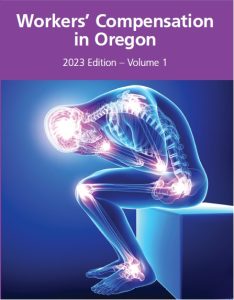This article is excerpted from Oregon Real Estate Deskbook, chapter 48 Manufactured and Mobile Homes, by Phillip C. Querin and William “Bill” D. Miner.
The complete chapter will soon be available on the BarBooks™ online library. Look for the preorder offer for the entire Oregon Real Estate Deskbook coming soon.
§ 48.3-3 Sales of Manufactured-Dwelling Parks
House Bill 4038 (2014) substantially modified the provisions that establish the process for tenants of manufactured-housing parks to purchase the parks. Park owners must now give written notice of their interest in selling the community (a) before commencing marketing to the general public, or (b) when the owner receives an offer that it intends to consider, whichever occurs first. Or Laws 2014, ch 89, § 1(1).
The written notice must be given to: (1) all tenants of the manufactured-dwelling park; or (2) the tenant committee, if one exists and (a) was formed for purposes that include the purchase of the park , and (b) with which the owner met within the 12-month period before delivery of the notice. Additionally, the written notice must be given to the “Office of Manufactured-Dwelling Park Community Relations of the Housing and Community Services Department.” Or Laws 2014, ch 89, § 1(2)–(3).
The notice must inform the residents that:
(a) The owner is considering selling the park.
(b) The tenants, through a tenants committee, have an opportunity to compete to purchase the park.
(c) In order to compete to purchase the park, within 10 days after delivery of the notice, the tenants must form or identify a single tenants committee for the purpose of purchasing the park and notify the owner in writing of:
(A) The tenants’ interest in competing to purchase the park; and
(B) The name and contact information of the representative of the tenants committee with whom the owner may communicate about the purchase.
(d) The representative of the tenants committee may request financial information described in section 2 (2) of this 2014 Act from the owner within the 10-day period.
(e) Information about purchasing a manufactured-dwelling park is available from the Office of Manufactured Dwelling Park Community Relations of the Housing and Community Services Department.
Or Laws 2014, ch 89, § 1(4).
Within 10 days after delivery of the notice, if residents are interested in purchasing, they must notify the park owner in writing of (1) their interest in purchasing the park, (2) the identification of the tenants committee, and (3) the name and contact information of a tenant representative from the tenants committee with whom the park owner may communicate about the purchase. Or Laws 2014, ch 89, § 2(1).
During the 10-day period after delivery of the notice, the tenant representative may make a written request for “the kind of financial information that a seller of a park would customarily provide to a prospective purchaser.” Or Laws 2014, ch 89, § 2(2). The park owner is required to provide the following information within seven days after the tenant’s request for information: (1) the “asking price, if any, for the park”; (2) the “total income collected from the park and related profit centers” during the “12-month period immediately before delivery of the notice required by [Or Laws 2014, ch 89, § 2(1)]”; (3) the cost of all park utilities during the same 12-month period; (4) the annual cost of park insurance policies per the most recent premium period; (5) the number of park-owned homes; and (6) the number of vacant spaces and homes in the park. Or Laws 2014, ch 89, § 2(3).
NOTE: The park owner may place certain restrictions on the required information, such as making all or part of the information confidential. See Or Laws 2014, ch 89, § 2(4).
If the tenants choose to continue, within 15 days of delivery of the owner’s financial information, they must (1) form a corporate entity legally capable of consummating the purchase, or associate with a nonprofit capable of doing so; (2) submit a written offer of purchase; and (3) provide a copy of the articles of incorporation or other evidence of legal capacity to purchase the park. Or Laws 2014, ch 89, § 2(5).
The park owner is not obligated to continue negotiating with residents if they fail to perform within any of the required time periods, or if they violate any confidentiality agreement. Or Laws 2014, ch 89, § 2(6)(c).
Finally, the following general principles apply to the purchasing process:
(1) All parties must act in a “commercially reasonable manner,” (Or Laws 2014, ch 89, § 3(1));
(2) Minor errors in providing notice to the tenants or in providing financial information will not prevent the owner from selling to a third party and will not make the owner liable to the tenants, (Or Laws 2014, ch 89, § 3(3));
(3) The park owner may seek out and negotiate with other potential purchasers while also negotiation with the tenants, (Or Laws 2014, ch 89, § 3(4));
(4) If the park owner fails to comply with the rules “in a substantial way that prevents the tenants from competing to purchase the park,” the tenants may obtain injunctive relief to prevent a sale to a third-party purchaser (only if the owner has not already filed an affidavit of compliance under ORS 90.830), or recover the greater of actual damages or twice the monthly rent from the owner for each tenant, (Or Laws 2014, ch 89, § 3(5)); and
(5) If a tenant violates the confidentiality agreement in a substantial way, the park owner may recover actual damages from the tenant, (Or Laws 2014, ch 89, § 3(6)).
Park owners are, however, excluded from complying with the above requirements in the case of certain transfers described in Or Laws 2014, ch 89, § 4.
 The 2023 edition of Workers’ Compensation in Oregon is due out in June. It includes a new chapter on combined conditions. This useful, 22-page chapter was written by Daniel Walker with SAIF Corporation in Salem.
The 2023 edition of Workers’ Compensation in Oregon is due out in June. It includes a new chapter on combined conditions. This useful, 22-page chapter was written by Daniel Walker with SAIF Corporation in Salem.